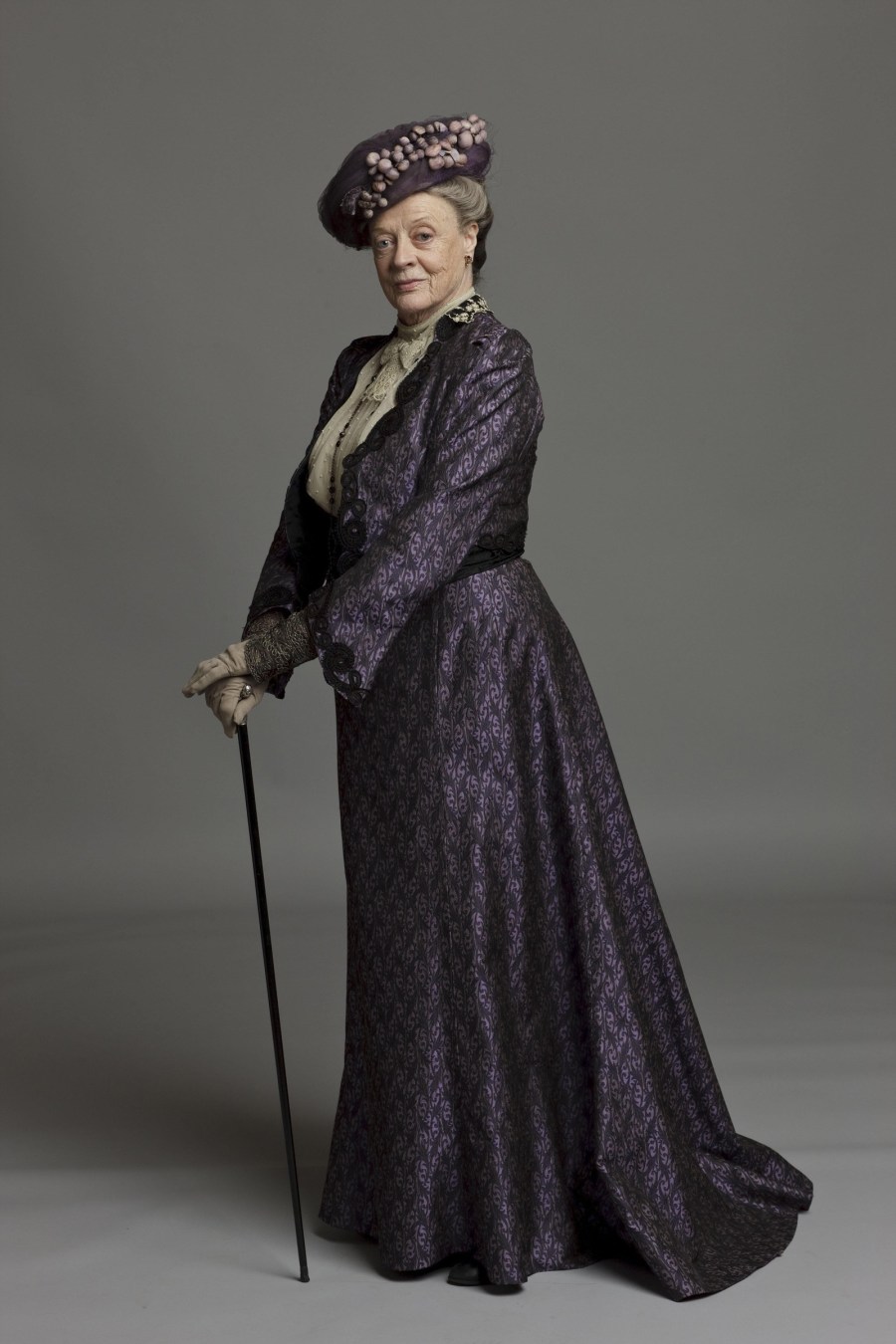British actor Maggie Smith died Friday at 89 years old. While her acting career spanned over 70 years, it was her roles in the Harry Potter franchise and the series “Downton Abbey” — that is, roles she played later in life — that propelled her to global fame and, she said, made it nearly impossible for her to go anywhere without being recognized.
The Dowager Countess Violet Crawley, her character in “Downton Abbey,” is one of the most exquisitely acted roles of a generation.
The Dowager Countess Violet Crawley, her character in “Downton Abbey,” is one of the most exquisitely acted roles of a generation. Seemingly a peripheral character, she still managed to often steal the show with her biting wit, one-liners and comedic timing. She offered audiences both light relief and pithy or searing aphorisms, becoming in many ways the moral compass of the Downton world. (“Do you enjoy these games, in which the player must appear ridiculous?” asks Sir Richard, Lady Mary’s then-fiancé, as an aside during a game of charades. “Sir Richard,” the dowager responds, “life is a game in which the player must appear ridiculous.”)
Notably, the dowager embodied tradition while still embracing progress — a balance I think many of us yearn for as these two ideas are fallaciously presented as being in opposition to one another.

My friend Hannah, a fellow Downton aficionado, noted that our yearning for both tradition and progress — and our collective resistance to this false dichotomy — is why people liked the dowager. And it’s the same reason why so many Americans have embraced Minnesota Gov. Tim Waltz, the Democrats’ vice presidential nominee: He appears to represent tradition and progressivism at the same time. In this increasingly disorienting world, in which previously fixed points and ideas and systems are disintegrating, preserving some things of the past can be a necessary and grounding exercise. Similarly, the dowager represented that duality, that expansiveness many of us long for.
Smith’s skill as an actor enabled her to embody this range with such humility, humor and conviction. As “Downton Abbey” show creator Julian Fellowes said on NPR’s “Fresh Air” in 2012, Smith “has an extraordinary skill to bring many different aspects of a character into her delineation, but they never seem contradictory … a lesser actor would, you know, find it difficult to be kind and cruel simultaneously or superficial here but quite deep here. But she manages to synthesize all these elements into a believable woman.”
Smith’s skill as an actor enabled her to embody this range with such humility, humor and conviction.
Her character was hardened and pragmatic, but fiercely loving and heart-centered. “I am not a romantic,” she says to Cousin Isobel, “but even I will concede that the heart does not exist solely for the purpose of pumping blood.”
Isobel, ardently insisting on progress and modernity, was the perfect antagonist for the dowager. The irony, of course, was that Isobel was ultimately more rigid (and therefore, in her own way, conservative), while the dowager was more flexible and expansive, traveling across greater ideological distances in her lifetime.
In one contentious moment during supper, in which the younger characters begin arguing, the dowager attempts to put an end to the disruption. “But I admire it when young people stand up for their principles,” Isobel declares. “Principles are like prayers,” the dowager quips, “Noble, of course, but awkward at a party.”













